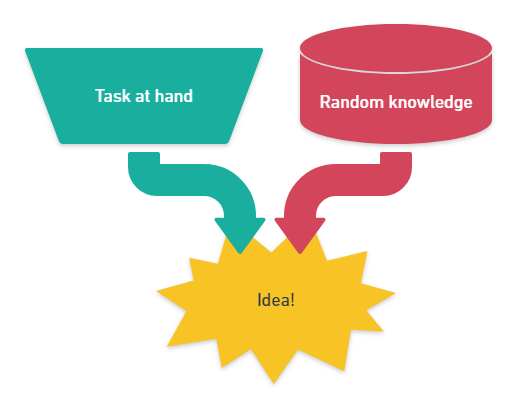Learn to be Creative
Future proofing yourself is open for everyone. We all have concerns about the future so it’s exciting that there are practical things you can do.
In my introduction to the subject, I set out 6 activities — in no particular order of importance. Learning to be creative is probably the best place to start however.
Creativity
You are forgiven for thinking that I’m crazy for saying that creativity can be learnt. Looking around it seems that creative is normally something people are born to be. This is not the case, as I’ll show below.
Why is creativity important? It’s all in the process. The end result is yours to keep or sell (if you can!) but the creative process makes you future proof. It may be that people are born to be expressive, but don’t confuse creativity with expressiveness — not the same thing at all. You don’t need to be flamboyant to be creative!
 Green Woodpecker (Lizzie Harper)
Green Woodpecker (Lizzie Harper)
Your creative process may involve art, ideas or pretty much anything (be creative!). Just make sure that you fully embrace the following.
There is a common creativity technique that characters in books often seem to use when stuck. They go for a walk or sit and daydream then *pow* inspiration hits; problem solved, world saved.
It might seem trite — but actually it really works. You might ask of course; “Where does the inspiration come from?”, or “How can I do this too?”
A story
Picture the veteran detective, a person of the world with a great store of knowledge from a wide range of experience (or maybe reading about criminology and case histories…). World weary maybe, but driven to solve a puzzle.
Having gathered evidence and clues, which may involve drama and life-threatening escapades (not necessary for all of us…), the detective will wrestle with the case for quite some time. It’ll be painful to watch, seeing the mental anguish as the poor soul tries to make sense of it all but doomed to failure. Why don’t they just give up?
So they take themselves off for a break. Go visit a distant relative, take a hike in the hills, go to a concert. Anything engaging and enjoyable to take their mind of that terrible, insoluble, problem.
*Pow* inspiration hits.
Hopefully the detective drops everything and takes action before it’s too late. They mustn’t be distracted whilst the solution is in their head or, “poof”, it’s gone. Maybe they’ll write it down or tell someone or maybe we’ll have to sit, agitated, through the drama…
Maybe no-one will believe them back at the station…
The drive back to the station is of course fraught. Doubts creep in. Questions arise. The idea sounded great at the time but the cold light of reality is starting to chip away at the detectives confidence. But what to do other than stick with it? World weary as ever, the detective knows they have to convince the Chief to accept the idea.
The 5 step process
So what happened in the story? What is this creative process? Do you recognise most of it?
The following are derived from James Webb Young’s 5 stages of the creative process (originally developed for advertising executives):
1a. Store of knowledge
1b. Gather evidence and clues (task knowledge)
2. Wrestle with the case (or task)
3. Take a break, enjoy yourself
4. Keep the inspiration when it appears
5a. Stick with it despite doubts
5b. Convince the Chief, share with others and turn the idea into reality
If it doesn’t work out, at least you have all learnt something!

All of the above can be done within a project, apart from 1a. This is really the heart of the matter. In order to unlock your creativity you need those random pieces of knowledge - diversify for more ideas! Otherwise there is nothing to create with! Random knowledge is 50% of the new idea, matched in your head to the 50% that comes from understanding the task at hand.
Where next?
Using the creative process has some (beneficial) side-effects. To gather a store of knowledge is a life-long mission which will lead you to diverse places and perhaps challenge preconceptions.
There will be failures. But these will lead to more and better ideas, so avoid blame and move on.
And of course you will gain motivation to take action in order for your ideas to become real. Your future self will look back with increased satisfaction on your contribution.
See these resources for inspiration in practice:
James Webb Young — “A Technique for Producing Ideas” (written in 1939, the founder…)
Saga Briggs — “Why Creativity Requires Conservative Thinking” (making useful ideas)
The Onion — “3-Step Brainstorming Process” (team-friendly process)
Ravi Shankar Rajan — “How to Generate Creative Ideas Easily” (the first article I read on this subject)
Phil Beadle — “Dancing About Architecture” (via BrainPickings, it is a practical adult activity book)
Rob Hoskins - "From What Is To What If" (how we can imagine a different future and so make it happen)
There are many many books on creativity processes, but in my view most of them are fine-tuning. They will only work well if you have absorbed and use the 5 principles above.
Last updated